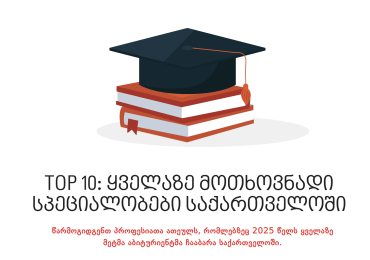Debates on how to provide high quality healthcare services while also keeping it affordable often feels like arguing about the proverbial chicken and egg—which comes first? Georgia’s healthcare sector however, is proving that it may actually be possible to offer both – high-quality and affordable healthcare.
In an effort to make healthcare accessible to large segments of the population, the country’s government introduced Universal Health Coverage (UHC) in 2013.. Under the system, most patients pay only the difference between the healthcare providers’ fee and the state’s coverage, which usually ranges from 0 to 30 percent of the charge. The remaining cost is reimbursed by the state. The government is expected to continue to refine the country’s UHC but underlying improved access principles will remain.
Private companies are a key part of the system, providing more than 80 percent of the health services in the country. The government, however, is the key payer of these services, reimbursing hospitals for the services they provide to patients. However, as with other social health insurance programs globally, limited state coffers, especially in emerging markets, are a key issue to consider.
Ensuring that the system works efficiently in the long run, especially in terms of cost, is one of the main issues the Georgian government is currently grappling with.
In Georgia, like in other countries in the region with historically Soviet-influenced health systems, there has been an over reliance on hospitals and acute-care services. For example, a patient with pneumonia in Telavi, a city in Eastern Georgia, 100 kilometres from the capital, will often travel to a hospital in Tbilisi to receive qualified services, instead of getting the same medical care in a local outpatient clinic.
Getting the right care in the right place is one of the key prerequisites of an efficient system. This is an integrated service delivery approach, where health services are organized and managed so that people get the care they need when they need it, in a user-friendly system that also provides value for money. Strengthening primary care with key specialist outpatient services in rural areas is therefore a cost-efficient solution that will also save state resources.
Another acute issue is the lack of specialized services. For example, some cancer patients opt to travel to neighboring countries like Turkey for the latest treatment and medical procedures, some of which is scarce in Georgia. This is another key issue that needs to be addressed in order to take Georgia’s healthcare system to the next level.
In both cases, the private sector can and is making a difference. A professionally managed, integrated service model allows leading private companies in Georgia to bring down costs to increase efficiency and introduce modern medical equipment to diagnose and treat severe illnesses.
The World Bank Group supports Georgia in these efforts, helping to make quality healthcare services affordable for more people. The World Bank provides advice to the government to help assess Universal Health Coverage and identify the areas that need improvement.
The International Finance Corporation (IFC), a member of the World Bank Group, is providing much-needed finances to help private healthcare services companies, like Aversi and Evex in Georgia, expand outpatient services across the country and to introduce new specialized services and state-of-the-art medical equipment used in cardiology or oncology.
Aversi and Evex were the first companies from Georgia to participate in the bi-annual IFC Global Private Health Conference – the last one held in May in Barcelona – which has helped them gain access to knowledge, and a global network of strategic partners.
So how do we drive value and provide access to high-quality healthcare that is affordable? There is, of course, no perfect formula and each country has its own unique way of getting there. But the scale of investment required does mean that the public and private sectors have to work more effectively together, and align the goals and incentives of both.
For Georgia, reaching the ultimate goal will take time, but the country is moving in the right direction, and the potential for the private sector to expand its role is evident.
Author: Jan van Bilsen, IFC Regional Manager for the South Caucasus
















